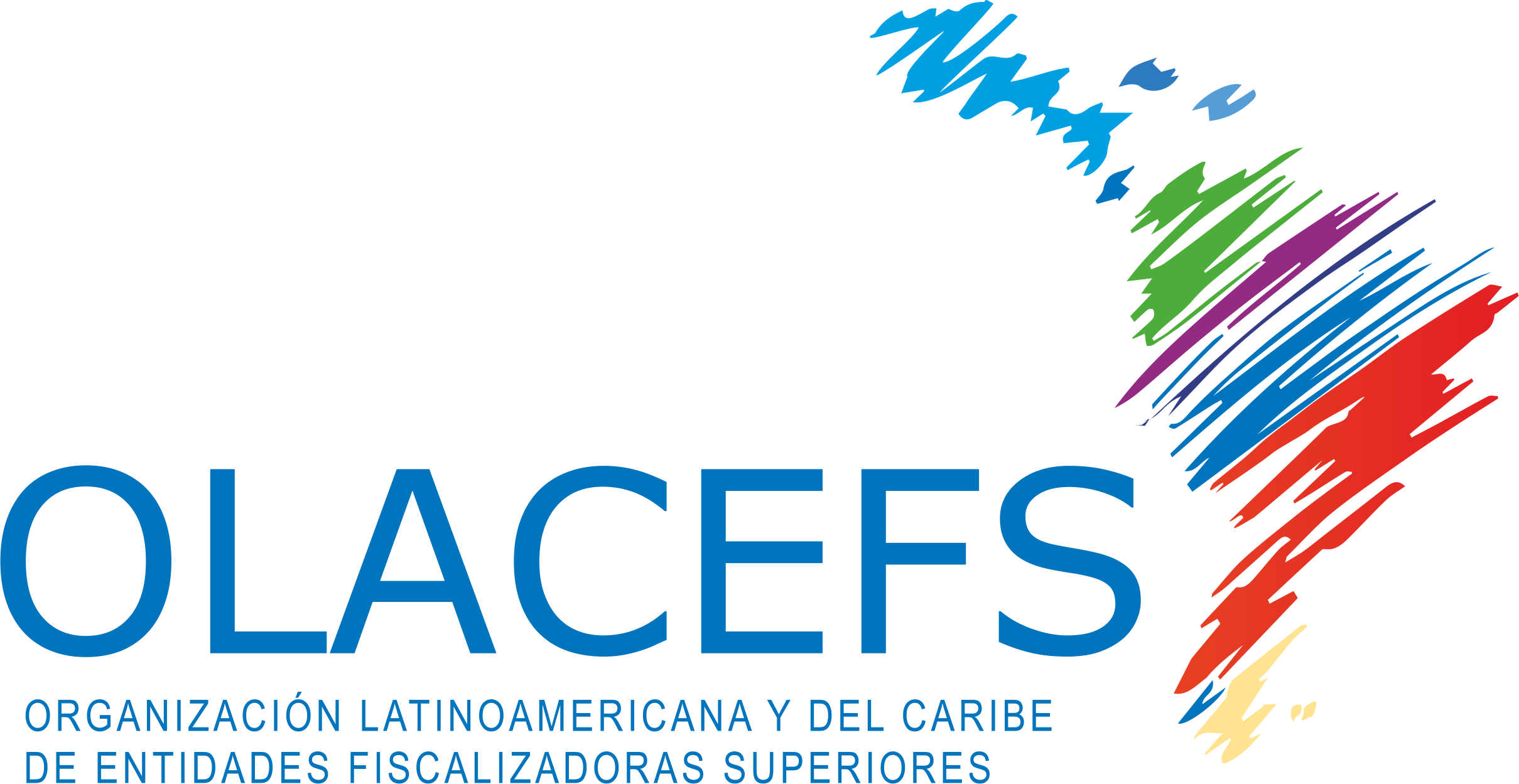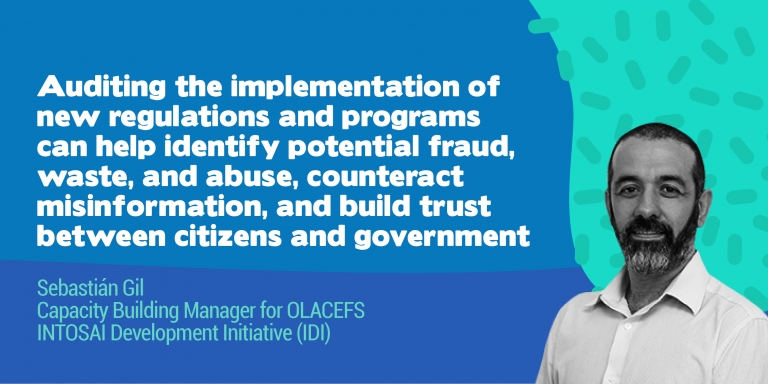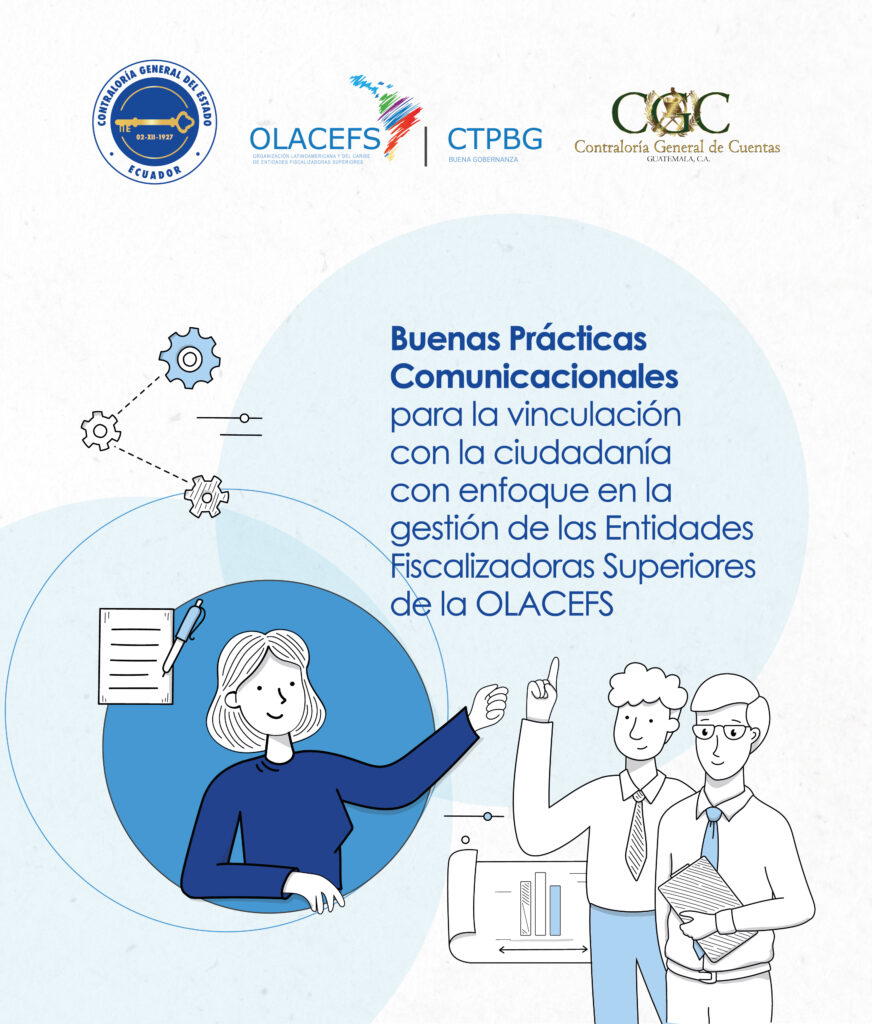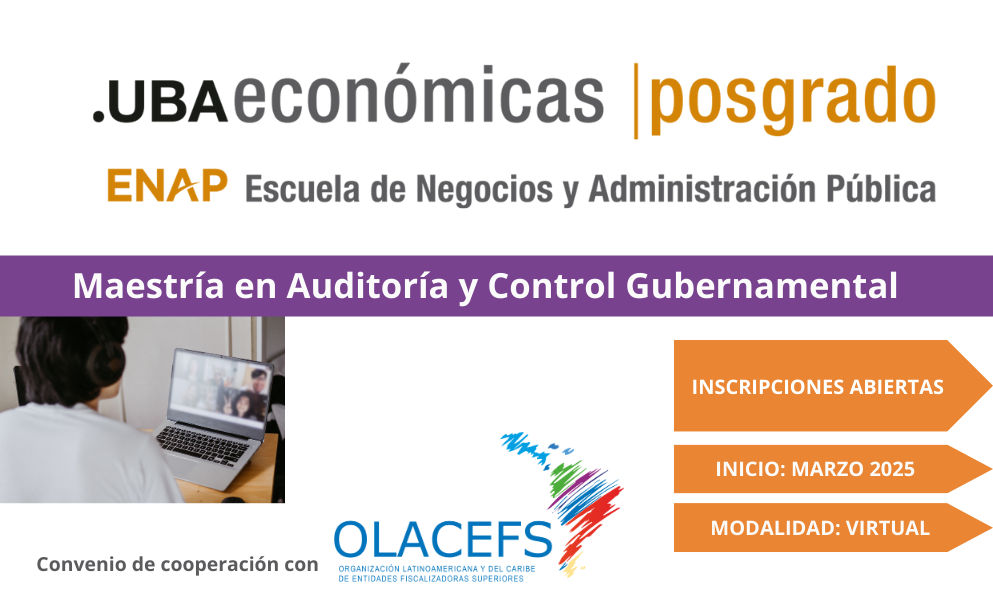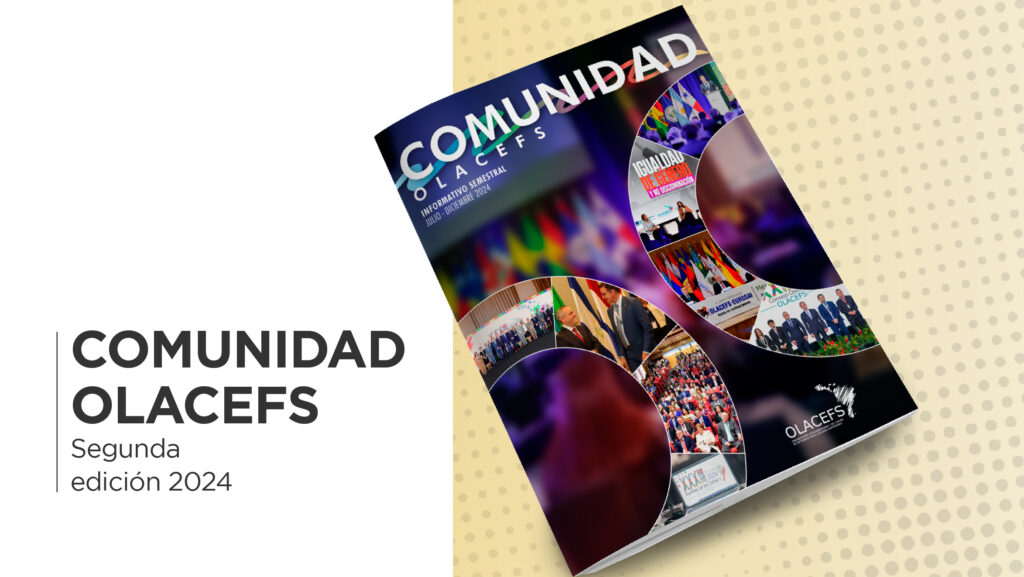Sebastián Gil
Capacity Building Manager for OLACEFS
INTOSAI Development Initiative (IDI)
I suggest to discuss the challenges for accountability posed by the current situation of COVID 19.
The starting point is the recently published document “Accountability in a time of crisis: How Supreme Audit Institutions and development partners can learn from previous crises and ensure effective responses to Covid-19 in developing countries”. This document was developed in collaboration between the INTOSAI Development Initiative (IDI), the Sierra Leone Audit Service (ASSL), the Liberian General Audit Commission (GAC) and the African Organization of Supreme Audit Institutions French-speaking (CREFIAF)
This document compiles findings and examples of audits related to epidemics and disasters, including the Ebola crisis in Sierra Leone and Liberia.
Possible actions that SAIs and their development partners can take to mitigate the risks posed by Covid-19 are also identified. The focus is on developing countries, with some specific references to the contexts that present the greatest challenges.
Background of the blog suggestion:
The Covid-19 crisis is global and has massive impact on all countries in areas such as public health, employment, economic growth and social protection. The crisis requires urgent actions by governments, and it can sometimes be difficult to balance this carefully with accountability, transparency and integrity.
We know from previous pandemics and disasters that emergency situations can lead to basic control systems being suspended or bypassed, combined with weakening of accountability systems and oversight. This can cause increased levels of waste, mismanagement and corruption at a time when government resources are under pressure.
As a respected oversight institution, Supreme Audit Institutions can play a key role in the different stages of a crisis like Covid-19. In this regard, audits of past crises – such as those covered in the document in question – provide key lessons to audit in the context of the coronavirus crisis.
In general, and always within their mandate and practices, it is understood that the actions of SAIs can be grouped into the following roles:
- Implement audits adapted to the current context;
- Provide advice on critical rules and regulations;
- Conduct real-time procurement audits to verify whether funds are being used in the right way and for the right purposes;
- Make explicit the persistence of the SAI oversight responsibility over national public accounts – despite the crisis – and its consequent role of general supervision of the administration of the crisis by the Government. This can also generate a deterrent effect on those who see the crisis as an opportunity to violate regulations and controls, contributing indirectly to safeguarding government and donor funds;
- In terms of audit topics, they can audit the implementation of new regulations and programs, such as infection control or economic stimulation, and thereby contribute to effective government actions. This can help identify potential cases of fraud, waste and abuse of public funds, counter misinformation, and build greater trust between citizens and government during a national emergency; and,
- Finally, already with the proper focus of performance auditing, the SAI can evaluate the economy, efficiency, efficacy and effectiveness of the use of funds and the national response to this situation. It goes without saying, that these reports can contribute to vertical and horizontal accountability, as well as for identifying lessons for the future.
The objective of the blog is to open a space for interaction in which, based on the visibility, mandate and context of the SAIs of OLACEFS, we can reflect and exchange ideas on the possible roles of the SAIs and their challenges.
About the author:
Mg. Sebastián Gil holds Bachelor and Master’s degrees in international Relations, Master degree in Finance and Master degree in Public Policy Evaluation.
University professor and consultant specialized in Performance Auditing and Public Policies. Graduate of the International Programme of the Canadian and Accountability Audit Foundation (batch 2004/5).
He has worked at the Nation General Audit Office of Argentina between 1994 and 2017, contributing to the development and practice in Performance Auditing.
Since 2018 he is working at the INTOSAI Development Initiative (IDI) – based in the National Audit Office of Norway – as Manager of Capacity Development for OLACEFS, position from which he systematically works with SAIs from OLACEFS and its different bodies. In terms of specific initiatives, he coordinates the IDI – OLACEFS initiative “SAI in the Fight against Corruption”, participates in the “Strategy, Performance, Measurement and Report” initiative (SPMR) and co-coordinates the initiative “Cooperative Audit of Public Procurement Sustainable using data analysis ”(CASP), first pilot of the IDI SDG Audit Model (ISAM), having also been a member of the team that developed this model.
